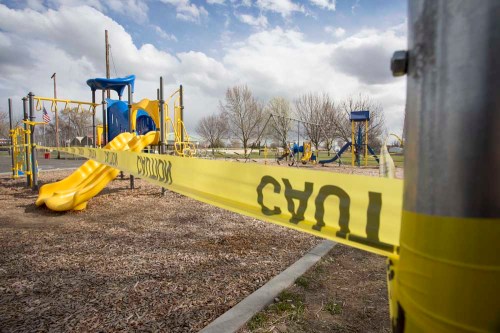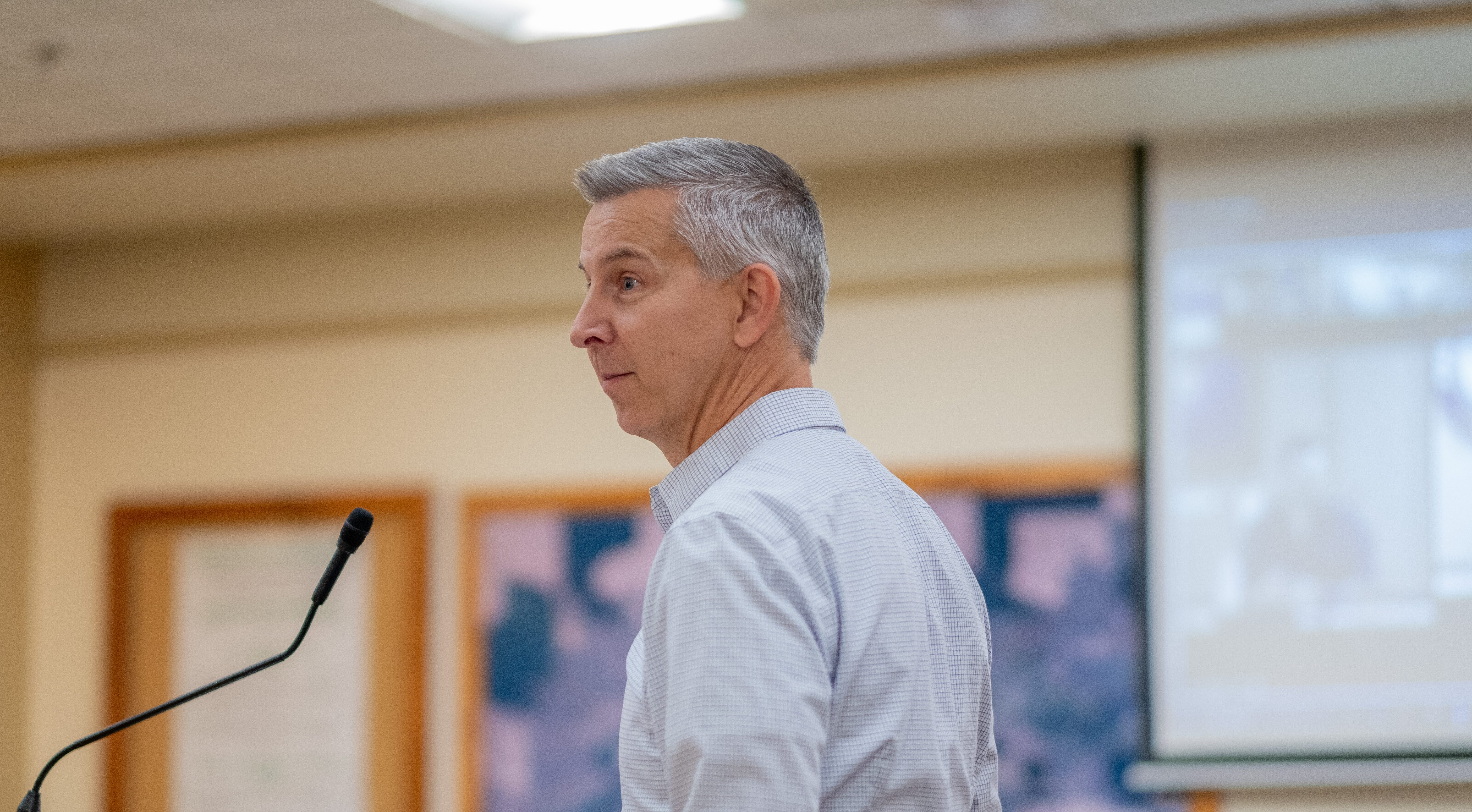Gov. Kate Brown issues statewide stay at home order
Published 5:15 pm Monday, March 23, 2020

- Caution tape surrounds the playground and basketball courts at Bard Park in Stanfield. Gov. Kate Brown issued a statewide stay home order on March 23, 2020, shuttering playgrounds and gathering places across the state.
SALEM — Gov. Kate Brown on Monday directed most Oregonians to stay home except for getting groceries, going to work or handling important activities that cannot wait.
Brown said she was acting because many Oregonians had failed to heed her directives to practice “social distancing” to decrease the transmission of COVID-19.
Trending
“I was very, very clear. I asked and urged Oregonians to stay home. On Friday night, I frankly directed them to stay home, and now I am ordering them to stay home,” she said in a conference call with reporters Monday afternoon.
“As I’ve said a zillion times in the last couple weeks, this is an instance where each one of us can make a difference and each one of our actions can have an impact and truly save lives.”
Brown ordered more than two dozen types of businesses to close as of Tuesday, primarily ones that cannot operate without close personal contact. Other businesses, including farmers markets and auto repair shops, may stay open if they maintain at least six feet of social distance between people, or if they can operate remotely.
She applauded stores that already have marked off spots six feet apart for individuals to stand in line or have converted solely to curbside pickup.
“I am not interested in taking someone’s job or shutting down a business if they can practice social distancing at work,” Brown said. “I’ve been really clear: If businesses are not complying with this order, we will shut them down.”
Among businesses allowed to stay open are grocers, pharmacies, bars and restaurants for takeout or delivery, banks and gas stations.
Trending
Key provisions of Brown’s far-reaching order include:
• Oregonians should stay home whenever possible.
• Violating the order could be a Class C misdemeanor.
• Except for members of the same residential household, all non-essential social and recreational gatherings of individuals are prohibited immediately, regardless of size, unless people can stay at least six feet apart.
• As of Tuesday, specific retail businesses are closed. They include arcades, barber shops, hair salons, gyms and fitness studios, skating rinks, theaters and yoga studios.
• Businesses not on the closure list may operate via telework or by implementing social-distancing policies “consistent with guidance from the Oregon Health Authority.” Brown said OHA still was working on those guidelines.
• With the exception of businesses allowed to stay open, indoor and outdoor shopping malls must close.
• Playgrounds, sports courts, skate parks and some other outdoor recreation facilities are closed. Facilities allowed to remain open, including golf courses, must strictly follow social distancing guidelines.
• Child care facilities are restricted to “stable groups of 10 or fewer children,” meaning that the children must be in the same group each day.
• Public and private campgrounds are closed, although veterans and camp hosts can remain in state parks. RV parks and other housing may remain open.
• State agencies generally are closed to the public, except by appointment in some circumstances, and state employees should work remotely if possible. Brown urged local, tribal and federal offices to do the same.
Through much of the weekend, the governor had been resisting issuing a statewide stay home order. Pressure mounted as local government officials in the Portland metro and Eugene-Springfield areas urged her to issue such a statewide order. The city of Portland was prepared to do so on its own.
In explaining Monday’s order, Brown told reporters: “I wanted to make sure that we had an executive order that worked for all of Oregon. That we could ensure that Oregonians in very rural communities of the state, like Adel and Ontario, could comply as well as folks in metropolitan areas.”
She said she also wanted an order that could be sustained for a longer term: “For example, maybe more than a few weeks.”
Brown said she expects the Legislature to hold a special session in the next week or so in response to the pandemic.
A legislative committee on Monday was working on proposals. “It is important we do things on a statewide level so we not move the problem around to different places,” said co-chair Sen. Arnie Roblan, D-Coos Bay.
“Following this order will save lives, while still allowing businesses to function if they can protect employees and customers through social distancing. While many businesses and organizations that are heavily dependent on foot traffic and in-person interactions have already closed or will close under the expanded order, other businesses that make robust plans to meet social distancing requirements — and enforce those requirements — may remain in operation, preserving jobs while ensuring health.”
— Gov. Kate Brown in issuing Executive Order 20-12
Effective Tuesday, Gov. Kate Brown has ordered the following businesses to close. Other businesses must operate remotely or within social distancing guidelines.
• Amusement parks
• Aquariums
• Arcades
• Art galleries, except for being open by appointment
• Barber shops and hair salons
• Bowling alleys
• Cosmetic stores
• Dance studios
• Esthetician practices
• Fraternal organization facilities
• Furniture stores
• Gyms and fitness studios, including climbing gyms
• Hookah bars
• Indoor and outdoor malls except for businesses allowed to remain open, including food (takeout or delivery), grocery, health care, medical, pharmacy or pet store services.
• Indoor party places, including jumping gyms and laser tag
• Jewelry shops and boutiques unless they provide goods exclusively through pick-up or delivery
• Medical spas, facial spas, day spas and non-medical massage therapy services
• Museums
• Nail and tanning salons
• Nontribal card rooms
• Skating rinks
• Senior activity centers
• Ski resorts
• Social and private clubs
• Tattoo/piercing parlors
• Tennis clubs
• Theaters
• Yoga studios
• Youth clubs









